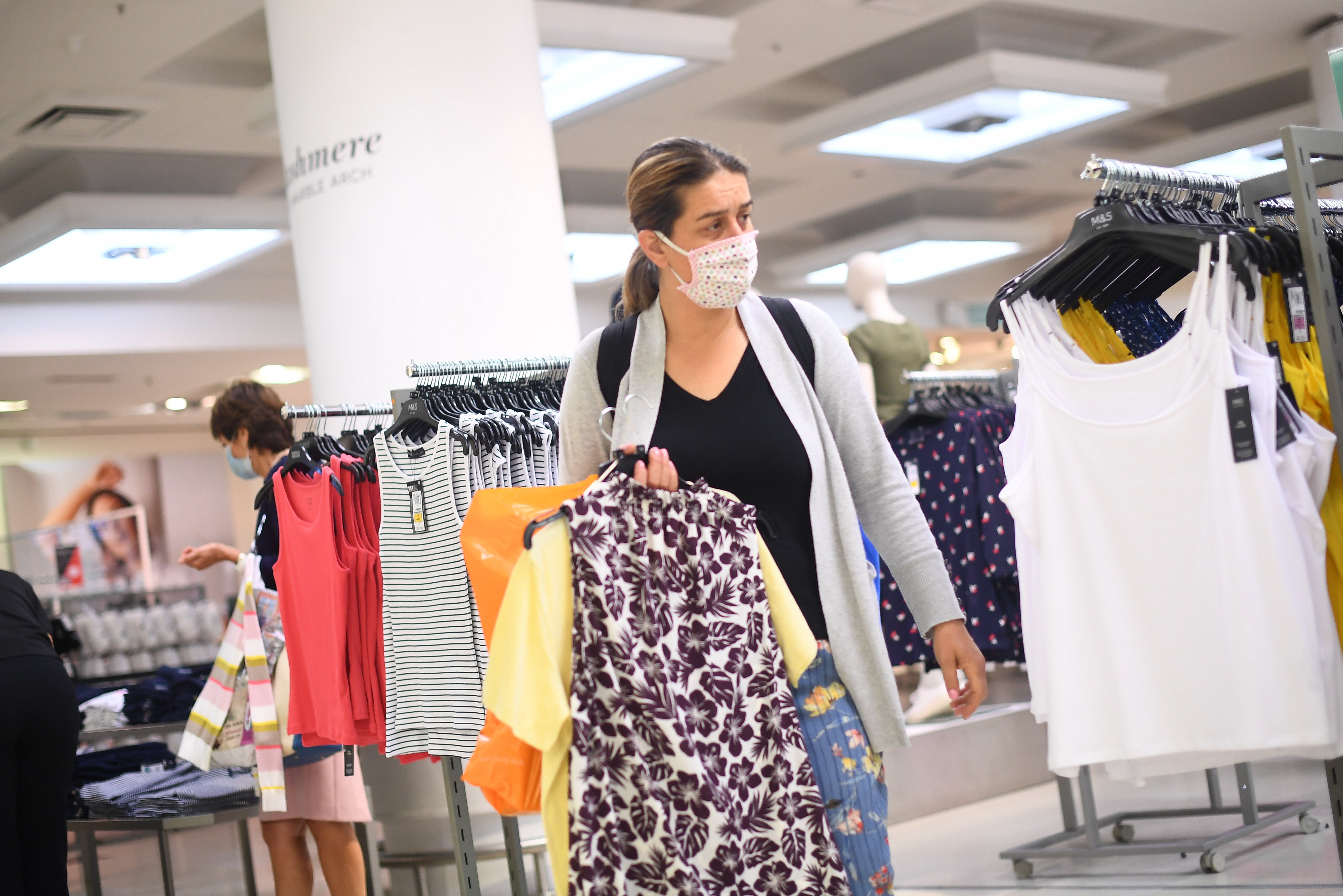Shop prices tumble sharply on back of cheaper food and clothes
Shop prices fell by 1.2% year on year in July, according to the latest BRC-NielsenIQ shop price index.

Shoppers have seen retail prices plunge more sharply this month on the back of summer clothing sales, while food also became cheaper, according to new data.
Shop prices fell by 1.2% year on year in July, according to the latest BRC-NielsenIQ shop price index.
It represented an acceleration in price decreases after deflation of 0.7% in June.
It’s an uncertain time for many households as the economy slowly reopens
Helen Dickinson chief executive of the British Retail Consortium, said the slump in prices was partly “due to fierce competition between supermarkets keeping food prices low”.
Food prices fell by 0.4% for the month, accelerating from a 0.2% decline in the previous month as major supermarket chains continue to compete with the low prices of German discount rivals Aldi and Lidl.
Meanwhile, non-food retailers, which include fashion and homeware firms, saw prices slide by 1.8% in July, following a 1% fall in June.
Ms Dickinson said: “With the reopening of some holiday destinations and other recreational activities, consumers broadened their spending to include more leisure and travel.
“In response, non-food retailers, particular fashion businesses, have been working hard to keep consumer appetite alive with summer sales.
“Unfortunately for consumers, low prices may not last forever.
“Recently, retailers have faced huge cost pressures as a result of rising costs of shipping, haulage and petrol as well as frictions from exiting the EU.
“The additional paperwork and physical checks on EU imports in October and January may push prices up in the long term.”
it’s important that retailers continue to keep prices low, especially as the increase in CPI is likely to lead to different shopping behaviours to help pay for the other increases in household spend
Wider inflation across the economy has jumped in recent months, with the Consumer Price Index (CPI) rate of inflation lifting to 2.5% in June – the highest in almost three years.
Mike Watson, head of retail and business insight at NielsenIQ, said: “It’s an uncertain time for many households as the economy slowly reopens, and recent NielsenIQ research shows 41% of all shoppers are watching their spend more than they did before the pandemic.
“So, it’s important that retailers continue to keep prices low, especially as the increase in CPI is likely to lead to different shopping behaviours to help pay for the other increases in household spend.”
Bookmark popover
Removed from bookmarks